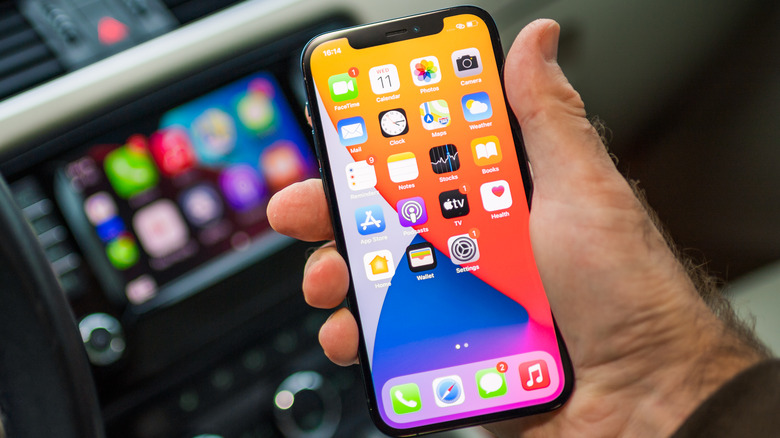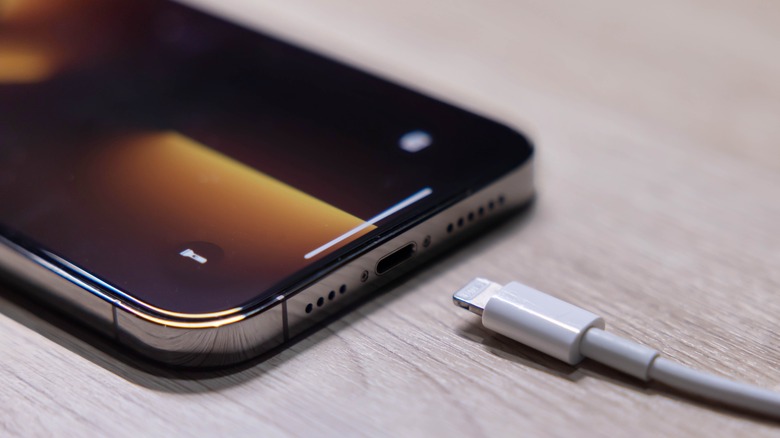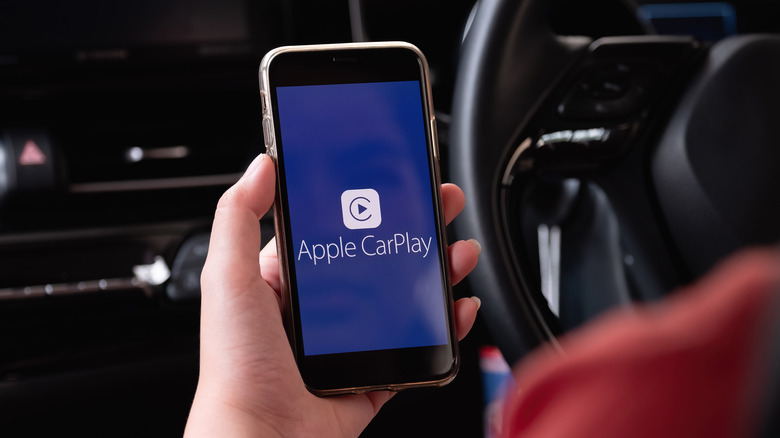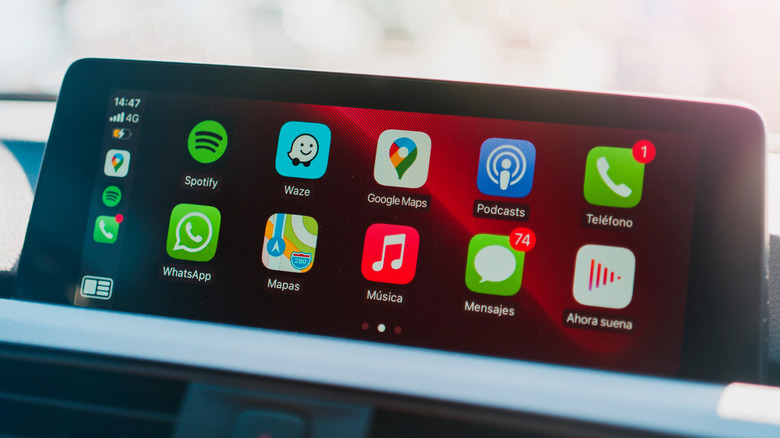Is An Apple CarPlay Wireless Adapter Worth It?
Many new cars sold in the U.S. have Apple's CarPlay and/or Android Auto built-in, but only some of them offer wireless CarPlay support; the rest only feature wired connectivity, meaning you must plug a Lightning cable into your iPhone to access the platform on the vehicle's infotainment system. The only real difference between wired and wireless CarPlay is eliminating the need to plug in the phone.
Wireless CarPlay adapters have been around for quite some time now; they plug into your car's wired USB port and add wireless connectivity support to the vehicle's infotainment system. Most wireless CarPlay adapters are more or less the same internally, with a few differentiating features such as passthrough charging or multi-iPhone pairing. With that said, it's not all rainbows and daisies, as wireless CarPlay itself comes with a few potential downsides, such as pairing and latency issues. In light of that, is it worth spending the money on a wireless adapter?
What are the benefits of wireless CarPlay?
The most obvious difference between wired and wireless CarPlay is that you no longer have to plug your iPhone into your car, as the connection between the two is made entirely wireless. While this may sound minuscule to some, it may be enticing to others. The biggest upside with wireless connectivity is that you no longer have to remember to plug in your iPhone every time you start the car and you won't have to worry about losing or forgetting the Lightning cable.
This is great for those who would say, "It's only a five-minute drive, I can go without CarPlay," as you'll always have it as an option thanks to the wireless connection. Of course, this also means that you can leave your iPhone in your pocket or purse when you get into the car, increasing the convenience factor.
Another potential upside is that older cars may have USB ports that charge your iPhone at a very slow pace and it could take a few hours to fully recharge the handset. This is because some older cars' USB ports were designed to only play music from a USB flash drive, while charging was typically reserved for a DC adapter. With wireless CarPlay, you'll be able to use your iPhone for CarPlay and plug it into a DC fast charger at the same time.
What are the downsides of wireless CarPlay?
As with anything wireless, there are inherent downsides you'll have to learn to accept if you want to abandon the wired connection option. Since these wireless CarPlay adapters aren't officially licensed by Apple, reliability isn't guaranteed and some products may work better than others. Based on user reviews, it seems the main issue often involves the initial pairing process between the iPhone and adapter when the user first turns on their car. If you use one of these adapters, you may find that you'll have to unplug it, wait a minute, and then plug it back in after starting the car to get it to work.
Another issue could arise if your daily commute involves traveling into a busy downtown area. Wireless CarPlay uses Wi-Fi to communicate with your iPhone, and as with your Wi-Fi at home, there could be potential interference issues that may cause an unstable connection. In fact, the official Apple forums are full of users who have dealt with wireless CarPlay disruptions caused by interference. In these cases, you'd have to switch back to the wired connection for stability.
Another potentially unavoidable issue with wireless CarPlay is a delay. Some users — including many on Reddit — say they've experienced a one- to two-second delay when performing CarPlay actions, including things like skipping to the next song and switching to a different app. For some users, this delay is undetectable, but for others, it's very annoying and an absolute dealbreaker.
Should you get a wireless CarPlay adapter?
If you're tired of having to plug in your iPhone every time you get into the car or you're the type of person who takes out the cable and then forgets to bring it with you next time, then yes, getting a wireless CarPlay adapter is likely worth the cost for you. The only difference between wired and wireless CarPlay is that you eliminate the wire entirely — it's a matter of convenience and which downsides you're willing to tolerate for it.
If you've decided to buy an adapter, the next big question is which one you should choose. There are a number of options on the market, and some of them enjoy higher ratings from users than others — though, of course, your experience could vary. Beyond that, different adapters may come with different features, so it's important to read the fine print and make sure you're getting the product that meets your needs.
For example, the CARLIMEKI Wireless CarPlay adapter claims to support all wired CarPlay features and is said to be compatible with things like steering wheel controls. Alternatively, the OTTOCAST U2-Air Wireless CarPlay adapter claims to offer boot speeds as fast as seven seconds, depending on the car model. If you live in a multi-driver household that contains both Android smartphones and iPhones, you may want to consider something like the CarlinKit ai Box, which is designed to add an Android option in vehicles that have wired CarPlay support (assuming you own a supported vehicle model, as well).



